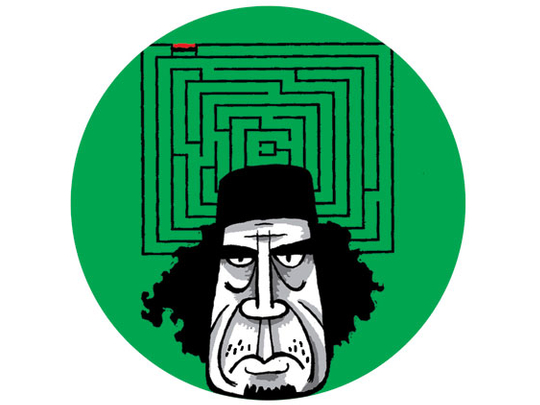
There is little doubt that history is being made in Arab lands. A younger generation has provided the vanguard of movements that seek a new social, political and economic compact. Consistent with its public diplomacy since the turn of the century, the West interprets the upsurge as the long-awaited quest for democracy and freedom.
This reductionist discourse does not acknowledge that the ‘rage' is also rooted in pent-up emotions left behind by Israel's wilful frustration of Arab governments' initiatives to get justice for the Palestinians. Again, the Arab youth is dissatisfied with narrow local nationalisms and has not abandoned a pan-Arab dimension of their consciousness and identity. There is also an inadequate grasp of the specific context of the so called ‘Arab revolt' in different countries.
Far from being insular, the Arab rulers have been eager to put together short- and long-term reform packages even though the response of the agitating groups to them has varied from country to country. The lack of a clearly positive reaction to the offer of negotiations in Bahrain, for instance, may point to factors that go beyond the parameters of protest in other situations. This apprehension has led to a proclamation of emergency and recourse to the idea of collective security that does and should underpin the Gulf Cooperation Council. No regional country should feel alarmed by the arrival of a small Saudi and UAE force in Bahrain to help the authorities protect vital civic and financial centres. The proposed dialogue has a better chance of producing sustainable reforms if conducted in a secure environment.
Power rivalry
The armed conflict in Libya has however become a case by itself because of several distinctive features. Amongst them are Muammar Gaddafi's unusual personality; the rivalry for power and influence of the three major tribes including his own; Gaddafi's unique participatory democracy designed to subordinate the instruments of a modern nation state to the culture of a mega tribe of which he is the sole leader; chequered history of Libya's relations with the West, the latest phase of which was the rapprochement that began with Gaddafi's decision in 2003 to bring back western oil companies; the abrupt end of this period as fawning European politicians suddenly switched over to a demand for him to step down; and his defiant response that turned dissent into a civil war.
I have a vivid memory of watching hospitable Arab leaders at close quarters as a senior foreign service aide to more than one president and prime minister of Pakistan. The experience of calling on Gaddafi in his well appointed desert tent with Pakistan's late prime minister Benazir Bhutto was, however, of a singular nature. He sat at the entrance of the tent looking far away into the vastness of the desert. Conversations were amiable but with virtually no eye contact. One saw an intense man who had his own desert and his own book. No wonder he considered the uprising in the east as an armed heretical revolt by a ragtag army that could be crushed with superior force. Given the record of the western powers, he could play on the fear about their intentions. There is the counter narrative that has been scripted mostly by the left-leaning analysts from Europe and North America and that interprets the current western interest in the uprising of February 17 as an effort to control, Iraq-style, the production, distribution and pricing of Libyan oil. Libya has about 3.5 per cent of global oil reserves; its proven reserves stand at 46.5 billion barrels.
There had been worldwide reluctance to endorse direct military intervention in Libya because the wars in Iraq and Afghanistan were so destructive. But Gaddafi has sharpened the language of revenge — "house to house, room to room" — as forces loyal to him headed for Benghazi. This facilitated the adoption of a resolution by the UN Security Council, albeit with five important abstentions, that authorises all ‘necessary measures' to protect civilians including the enforcement of a no-fly zone. The text of the resolution is flexible enough to provide calibrated escalation that has involved aerial attacks on Gaddafi's troops, defence installations and infrastructure like the coastal road. Tripoli has marched to the precipice and now Libya's future is fraught with uncertainties.
It may still be worthwhile to explore the possibility of a complex Arab engagement, led perhaps by Egypt, with Gaddafi that combines implementation of the Security Council resolution with an Arab initiative to persuade Gaddafi to negotiate transition to a new constitutional order. Tripoli cannot afford to be ostracised from the Arab-Islamic world forever. After a transformative assertion of people power, Tunisia and Egypt would arguably craft a more democratic dispensation for themselves. Can Libya perpetuate an autocratic rule despite considerable urbanisation and emergence of a class that led the uprising in the east? It is crucial to prevent mindless reprisals threatened by the regime but it is no less important to save Libya from a protracted conflict with the international community with its intended and unintended consequences. There is still an important role for Arab diplomacy.
- Tanvir Ahmad Khan is a former foreign secretary of Pakistan.











